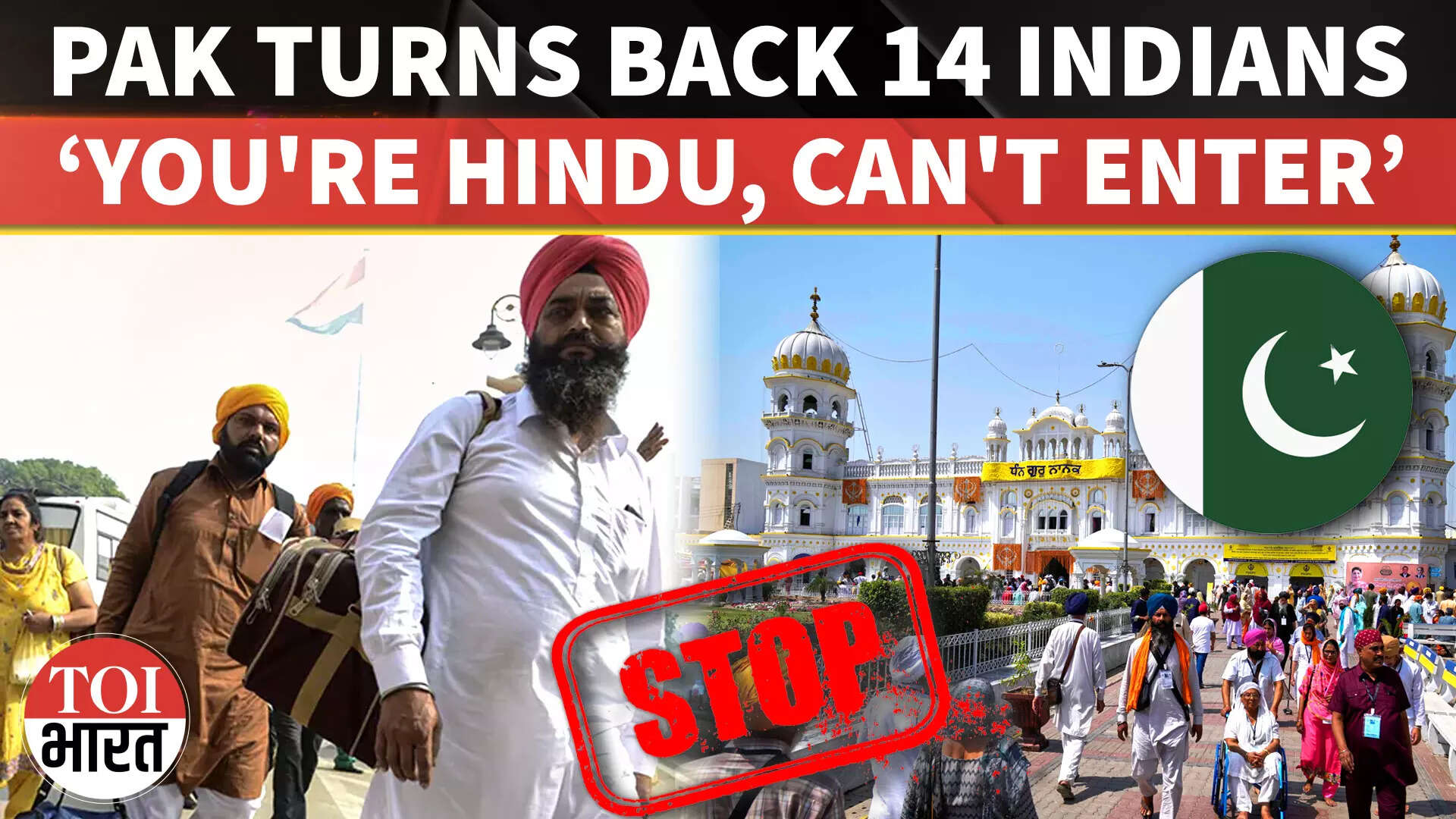Politics
Pakistan Blocks 14 Indian Pilgrims from Attending Sikh Celebrations

Pakistan has barred 14 Indian pilgrims from entering the country to participate in celebrations for the 556th birth anniversary of Guru Nanak at Nankana Sahib. This decision, made at the Wagah border, is particularly notable as the group held valid visas to attend the festivities. Their denial marks a significant setback in the ongoing people-to-people exchanges following the recent reopening of borders after Operation Sindoor earlier this year.
The pilgrims were part of a larger contingent of approximately 2,100 Sikh pilgrims who successfully crossed the border to partake in a ten-day pilgrimage, celebrated with considerable fanfare. Immigration officials reportedly cited their religious identification as a reason for the denial, classifying them as “Hindus” rather than “Sikhs” based on their records.
This incident raises critical questions regarding the criteria for border crossings, suggesting that religious identity may be taking precedence over the formal validity of travel documents. The Indian government has yet to issue a formal protest regarding this incident. Earlier, it had lifted a travel ban following significant pressure from various Sikh organizations advocating for pilgrimage rights.
While the majority of pilgrims were able to enter Pakistan and celebrate the occasion, the exclusion of the 14 individuals highlights ongoing tensions and complexities in India-Pakistan relations. The implications of such incidents extend beyond individual cases, affecting broader diplomatic ties and the spirit of cooperation that these pilgrimages were designed to foster.
The situation is particularly poignant as it underscores the delicate balance between national policies and cultural exchanges in a region still grappling with historical grievances. As celebrations continue at Nankana Sahib, the absence of the 14 pilgrims serves as a reminder of the hurdles that still exist in promoting interfaith dialogue and mutual understanding.
In conclusion, while the successful entry of the majority of pilgrims indicates some progress, the incident involving the 14 blocked individuals reflects a deeper issue within the immigration framework that could undermine future cultural exchanges. The Indian and Pakistani governments may need to reconsider their approaches to enhance people-to-people connectivity, ensuring that such incidents do not tarnish the spirit of these significant cultural events.
-

 World4 months ago
World4 months agoSBI Announces QIP Floor Price at ₹811.05 Per Share
-

 Lifestyle4 months ago
Lifestyle4 months agoCept Unveils ₹3.1 Crore Urban Mobility Plan for Sustainable Growth
-

 Science3 months ago
Science3 months agoNew Blood Group Discovered in South Indian Woman at Rotary Centre
-

 Sports3 months ago
Sports3 months agoBroad Advocates for Bowling Change Ahead of Final Test Against India
-

 World4 months ago
World4 months agoTorrential Rains Cause Flash Flooding in New York and New Jersey
-

 Top Stories4 months ago
Top Stories4 months agoKonkani Cultural Organisation to Host Pearl Jubilee in Abu Dhabi
-

 Science4 months ago
Science4 months agoNothing Headphone 1 Review: A Bold Contender in Audio Design
-

 Top Stories4 months ago
Top Stories4 months agoAir India Crash Investigation Highlights Boeing Fuel Switch Concerns
-

 Sports3 months ago
Sports3 months agoCristian Totti Retires at 19: Pressure of Fame Takes Toll
-

 Business4 months ago
Business4 months agoIndian Stock Market Rebounds: Sensex and Nifty Rise After Four-Day Decline
-

 Politics4 months ago
Politics4 months agoAbandoned Doberman Finds New Home After Journey to Prague
-

 Top Stories4 months ago
Top Stories4 months agoPatna Bank Manager Abhishek Varun Found Dead in Well









